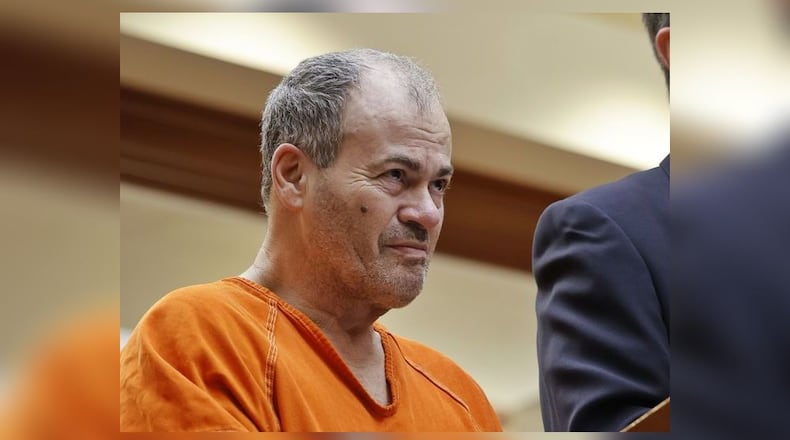The defense also filed motions to dismiss statements Ailes made to police alleging Ailes’ was not properly read his rights during questioning by investigators from Butler County and Indiana. After a hearing last week, Butler County Common Pleas Judge Keith Spaeth denied both defense motions.
Ailes, who was a construction worker in Oxford in 2006, was indicted by a Butler County grand jury for rape, aggravated burglary and aggravated robbery. All charges carry a gun specification, alleging a gun was used in the crimes.
The indictment came after a lengthy investigation by the Butler County Prosecutor’s Office using DNA genealogy tracing. The investigation was led by county prosecutor’s investigator Paul Newton.
The assault occurred on Jan. 9, 2006, at an off-campus house, according to the indictment and Butler County Prosecutor Mike Gmoser.
The suspect wore a mask, but his face was visible to the woman for a brief time and a sketch of the suspect was developed. His DNA also was found.
After forcing the woman to commit several sex acts, Ailes took $60 from her purse, Gmoser said.
Ailes was served with a search warrant for a DNA sample on Nov. 21 in Fayette County, Ind., but “it appears the affidavit initiated by Paul Newton was actually signed and submitted by someone named Joseph Baker. This completely invalidates the warrant itself, as it is not sign or notarized by the person listed as the affiant,” Washington wrote on the motion.
In March 2006, a similar attack happened in Fayette County, Ind. DNA collected there matched the DNA in the Oxford case. However, there was no match to DNA entered in any law enforcement database. The case went cold until following the DNA through genealogy pointed to the accused.
Prosecutors responded to the defense motion with an explanation of why two names are on the search warrant stating the instruction came from the Indiana judge who signed it. In the response, prosecutors said Newton and an Indiana investigator both swore to facts included in search warrant affidavit and were both present when the judge directed the signatures.
Gmoser told the Journal-News a second search warrant has been obtained for Ailes DNA since he as been in the Butler County Jail to make sure there would be no further question about the DNA collection..
Ailes in being held in the Butler County Jail in lieu of $500,000. Judge Keith Spaeth set his trial for May 23.
Gmoser said his office had been working for years with experts from Parabon NanoLabs to track down the suspect using genealogy DNA databases to piece together a family tree of the suspect.
Investigators were able to find the suspect’s father, and then through unraveling a web of genealogy, eventually found his mother. But the man did not know he had fathered the son and the mother didn’t know her husband was not the father, Gmoser said.
About the Author

